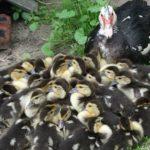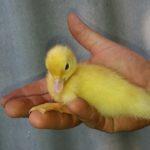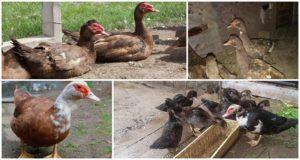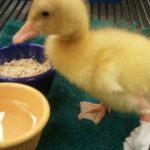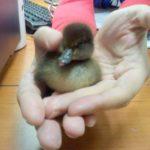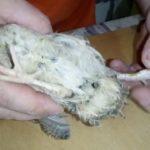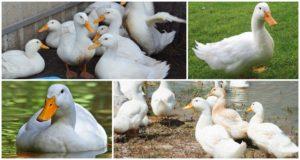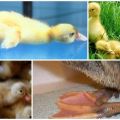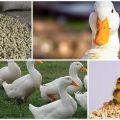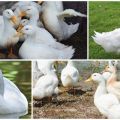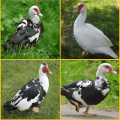What to do if a duck's legs are moving apart and what is the reason
A common problem that duck owners face is the death of young animals on their paws. This phenomenon is explained by many reasons, including infectious diseases, vitamin deficiency, malnutrition, and so on. Every owner should know what to do if the duck's legs are moving apart. If adequate treatment is not provided in time, the bird may die.
Why does a duck's paws part
Experts identify three main reasons why a duck begins to fall on its paws:
- Unbalanced diet.
- Invasive pathologies.
- Infectious lesion.
Veterinarians also call the following provoking factors:
- violation of the balance of trace elements;
- lack of amino acids;
- avitaminosis;
- body poisoning (toxic, chemical, biological);
- violation of the rules of maintenance (the order of free walking, ensuring a comfortable microclimate, etc.);
- overcrowding in the room where the ducks are.
If a symptom is found, it is necessary to examine the animal for damage and other visible manifestations of the disease. If none are found, and the problem persists, you should contact your veterinarian.
Unbalanced diet
Improper nutrition provokes vitamin deficiency. Lack of vitamins and minerals leads to the death of ducklings at the age of one month. In addition, young animals suffer from various ailments, the growth of animals slows down, the paws and beak lose color, the mucous membranes become inflamed, and the paws of the bird move apart. Other symptoms of vitamin deficiency are weight loss, lethargy, change in behavior - animals begin to pluck each other's feathers.
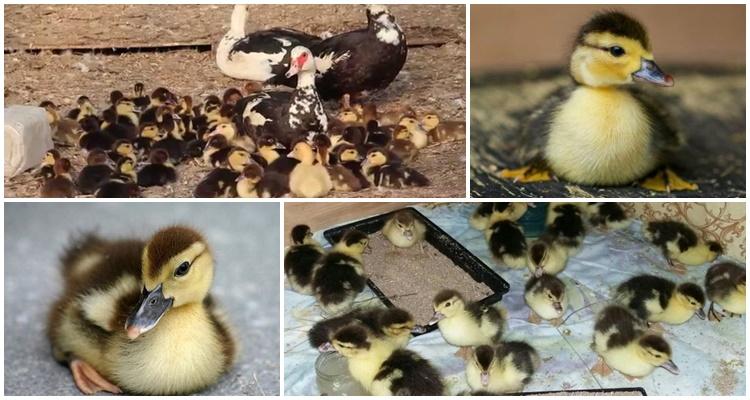
Invasive pathologies
If the bird's legs are moving, the cause may be internal or external parasite infestation. The first include worms, the second category includes lice, ticks, and chewing lice. In addition to the named symptom, a sick duck has diarrhea, feathers fall out, appetite disappears, and egg production decreases.
The vital activity of parasites reduces the immunity of the individual, and if untreated, the duck may die.
Infectious lesion
Infections are especially dangerous because they can kill an entire herd. The most common diseases among ducks are:
- hepatitis;
- salmonellosis;
- aspergillosis;
- tuberculosis;
- coccidiosis.
Infections most often enter ducklings with chicks purchased from an unverified breeder. Another reason for the spread of the disease is the lack of vaccinations.
What do we have to do?
The first thing to do if the poultry's legs begin to move apart is to place sick ducks separately from the rest of the livestock, and then call a veterinarian.If ectoparasites are the cause, you need to process the animal, as well as the room where the birds are. To disinfect the ducklings, potassium permanganate, lime or engine oil are used. After a week, the procedure is repeated.
To rid the duck of ticks, the problem areas are treated with boric petroleum jelly. The course of treatment is one week. There are three such courses in total, and they are held every 20 days.
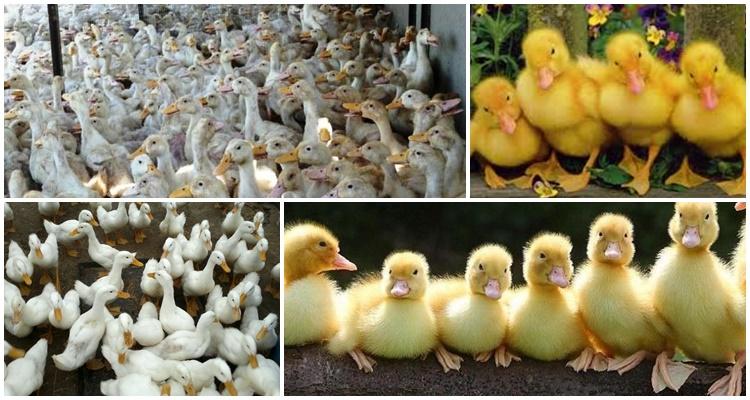
To replenish the deficiency of vitamins, the following products are added to the diet of animals:
- fish fat;
- carrot;
- bone meal;
- cottage cheese;
- eggs;
- eggshells.
Adult mallards are also given corn, pumpkin, squash, potatoes. In order to prevent an overabundance of one or another component, it is necessary to monitor the amount and frequency of food consumption - additives should not be too voluminous, and they should be given in portions.
As for infections, treatment is prescribed depending on the diagnosis:
- Aspergillosis. The therapy is carried out using a weak solution of copper sulfate. Also appoint "Nystatin".
- Tuberculosis. It is not treated, so sick animals are slaughtered and disposed of. Products obtained from such ducks should not be consumed.
- Hepatitis. Dangerous for young animals under two weeks of age. Treatment is ineffective.
Prevention
To prevent the appearance of external and internal parasites, you must:
- keep the duckhouse, drinkers, food containers in a clean state;
- to create bedding, use wormwood, needles and other herbs that scare off parasites;
- send newly acquired birds to quarantine (at least for 3-4 days);
- bathing tanks should be filled with ash and sand and installed outside;
- control the quality of feed, diversify the diet;
- eliminate dampness, cold, excessive heat in the room;
- regularly carry out the treatment of aviaries from parasites (animals should also be subjected to this procedure);
- in case of suspicious manifestations, carefully examine the birds and, if necessary, contact the veterinarian;
- vaccinate animals;
- keep young animals separately from adult birds;
- exclude contact of ducks with other animals.
Cases when the paws of the ducklings are moving apart often occur. It is important to correctly establish the cause and conduct competent therapy. To avoid problems, preventive measures must be followed.
